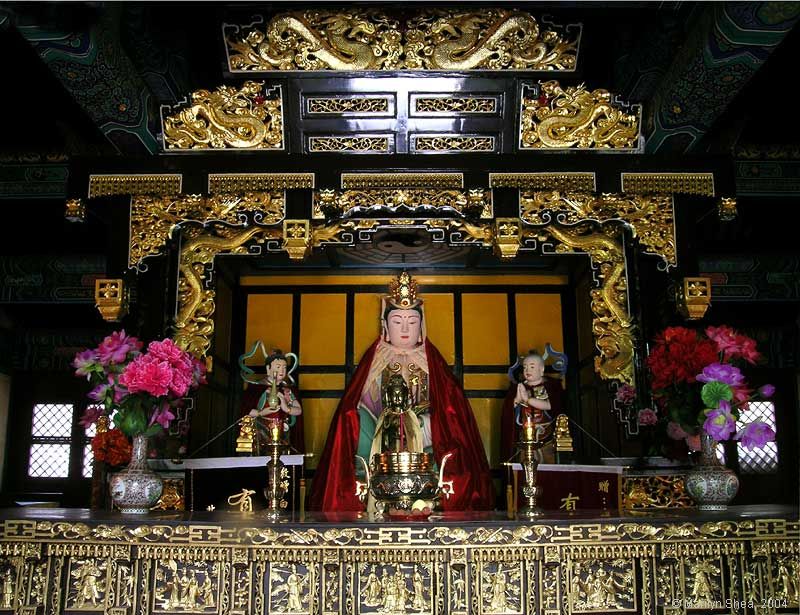 |
| Cihang Temple 慈航殿 (Cíháng Diàn) is dedicated to Guan Yin, the Goddess of Mercy. "Ci" 慈 means kindness, charity and benevolence, and "hang" means to sail, a boat or ship. The title cannot be translated literally but creates an image.
Guan Yin (or Kwan Yin by the old spelling) is, according to Buddhist belief, a personification or form Buddha takes. Guan Yin 觀音 (Guān Yīn) is usually depicted as a female form in China, but there are early depictions as a male. Guan Yin probably was an adaptation of Avalokiteśvara from Indian and Tibetan Buddhism. Her adoption by the Daoists after Buddhism spread over China is consistent with other adoptions. They view her as one of the Immortals and the characteristics attributed to her overlap with traditional Buddhist belief. Guan Yin is one of the most popular gods across China. Originally her Chinese name was Guanshi Yin (觀世音 (Guānshì Yīn) but it was shortened to avoid offending the name of Emperor Taizong (599–649) whose birth name was Li Shimin 李世民 (Lǐ Shìmín). No one, not even a god, goddess, or immortal, could share a name with the Emperor. Both Buddhists and Daoists observed the name change. In 1119, the Song Emperor Huizong conferred the title "Goddess Cihang Pudu Yuantong Zizai" upon Guan Yin: “慈航普渡圆通自在天尊”, “Cíháng Pǔdù Yuántōng Zìzài Tiānzūn.” |
http://hua.umf.maine.edu/China/beijing2.html
Last
update: October 2009
© Marilyn Shea, 2009